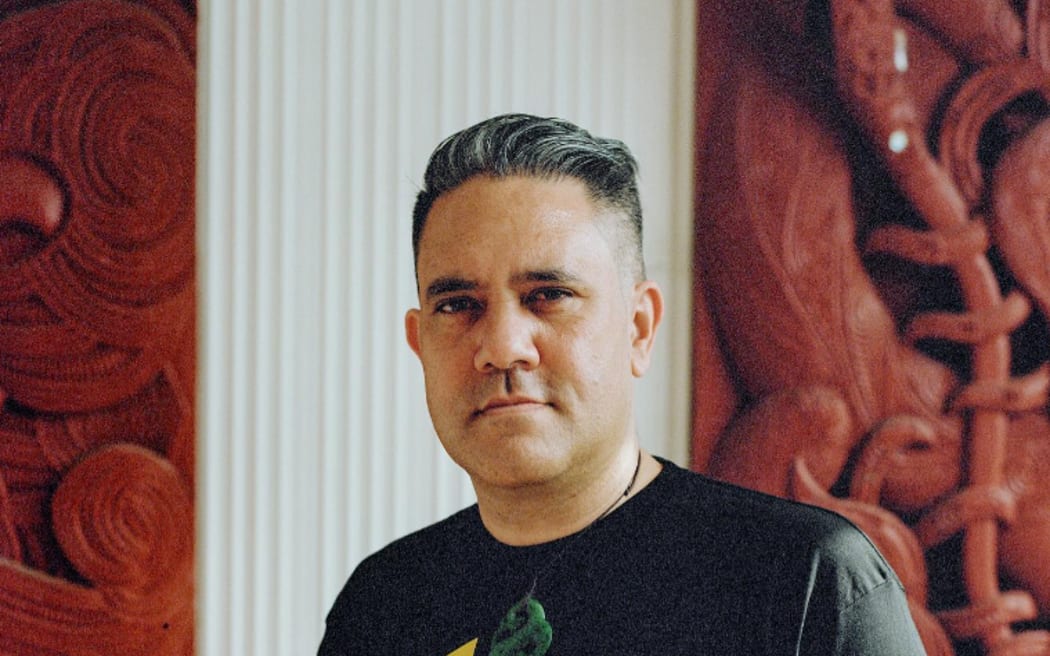
Photo: Sunreturn
There’s a long history of dance music born out of political protest, made by or speaking for historically oppressed peoples. You could easily argue that multiple genres - like house, reggae, or breakbeat - started this way, then were overtaken and diluted by commercial interests.
Mokotron, a Ngāti Hine producer based in Tāmaki Auckland, is specific about what underpins his mix of breaks and taonga puoro: his perspective as an urban Māori, and an interest in decolonisation.
His new release features tunes remixed by a roster of Māori and Cook Island Māori artists, each in conversation with Mokotron on topics more weighty and complex than you might expect from music that aims to make you move.
Mokotron appeared sometime around 2020, and soon attracted overseas attention, delivering a series of EPs on Spanish, Portuguese and UK labels. This release feels like a homecoming of sorts, released on Auckland label Sunreturn, with the pointed name United Tribes of Bass.
Caru’s remix of Tawhito (which means old, or ancient), brings a sparser percussive touch in place of the original's slabs of bass. In the PR Mokotron is effusive, saying “in 10 years time people will look back on this remix as the point at which Māori electronic music stopped being a novelty and started being a reality.”
On ‘Hīreretia Rā’, Akcept keeps the pūrerehua, kōauau, and karakia of the original, and halves the tempo, leaning into its dubwise subtext. Hasji strips away all the electro sonics from ‘Tatau O te Pō’, reconstructing its taonga puoro elements into an expansive aural collage.
Other tracks lean more into their dancefloor origins; there’s fevered drum n’ bass and minimal techno among the tracks here, making for a vibrant listen.
In the album’s PR, Mokotron notes the victory of getting at least one song featuring te reo onto commercial radio, saying elsewhere, “we have a saying that a spear thrust can be parried, but the spear of misfortune cannot. Music is another spear that cannot be parried, blocked or dodged”.
The layers of meaning run deep, and I highly recommend seeking out Mokotron and his remixers thoughts on this project’s significance.
For their entry, Big Fat Raro takes ‘Colonised Existence’, and creates a response: ‘Decolonize Existence’, adding their own vocals in response to Mokotron’s. While he says the original was about “being ripped away from whānau, whakapapa, reo and tikanga”, Raro calls their version “a call to all peoples of the Pacific”.
Mokotron goes on to say “they responded to my despair with hope and aroha. The remix is a lesson for me."

